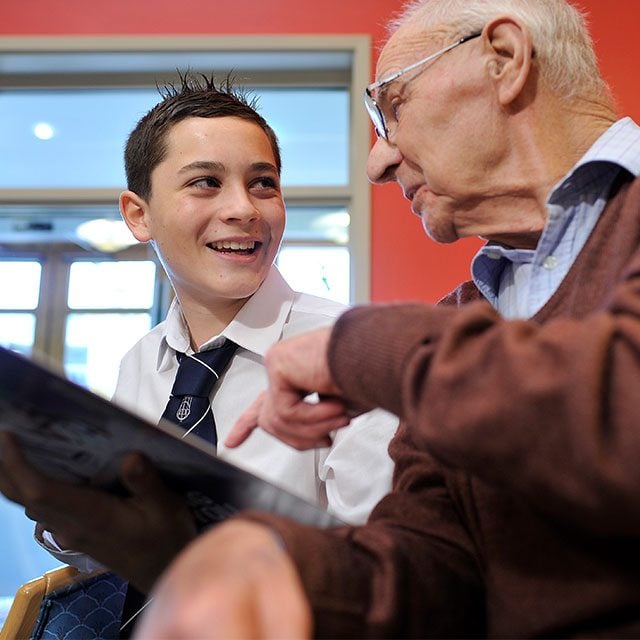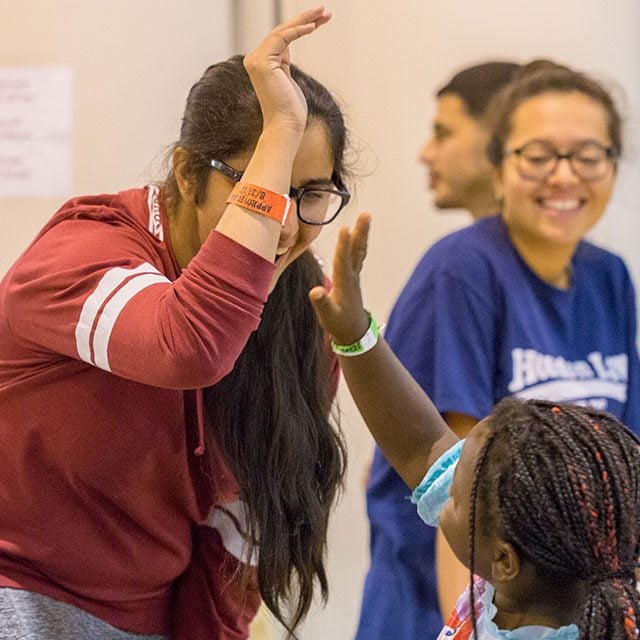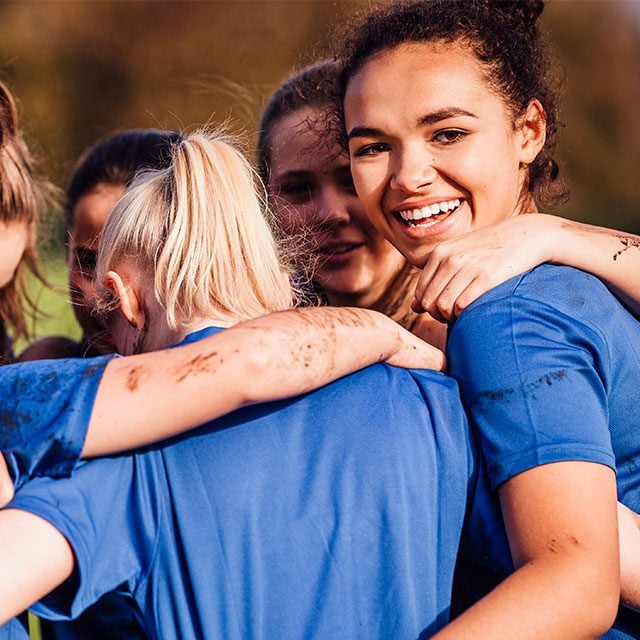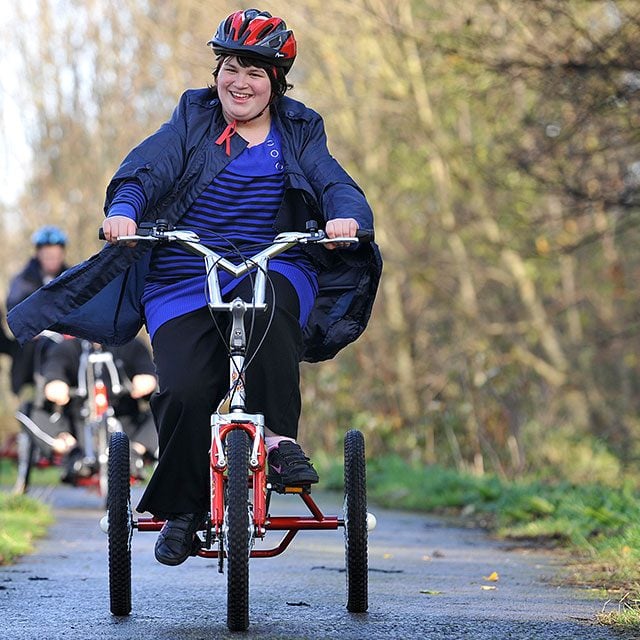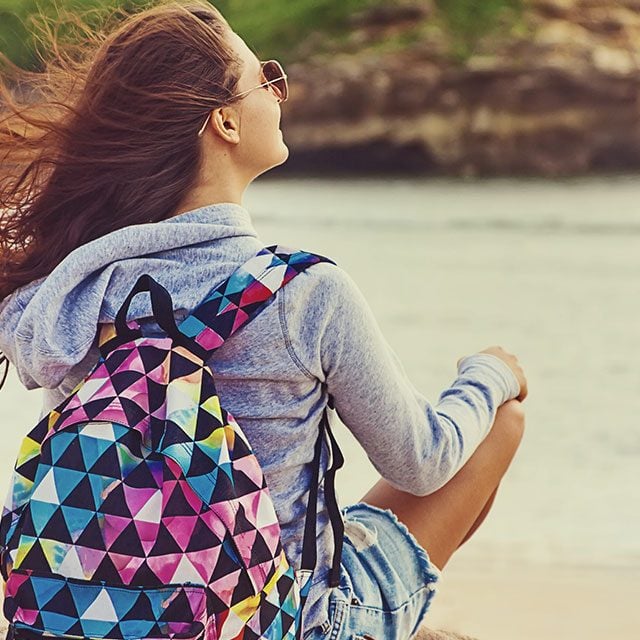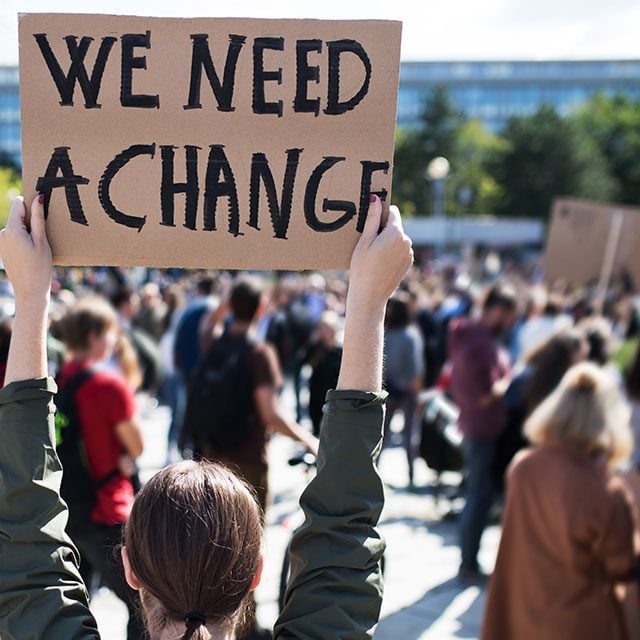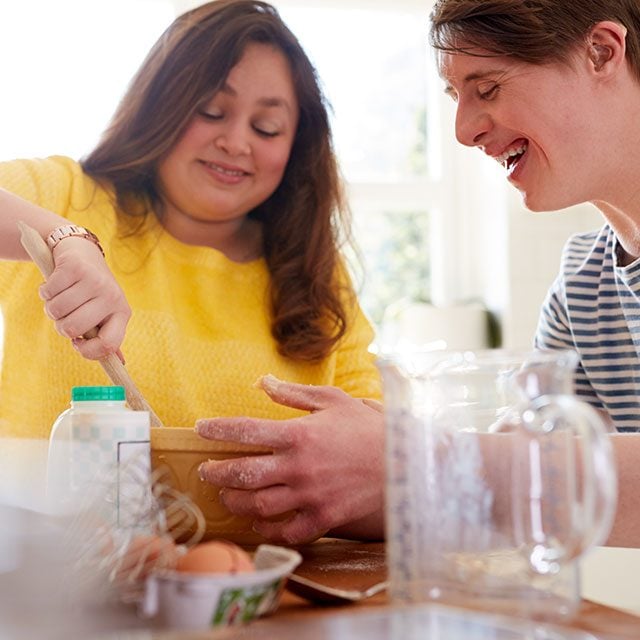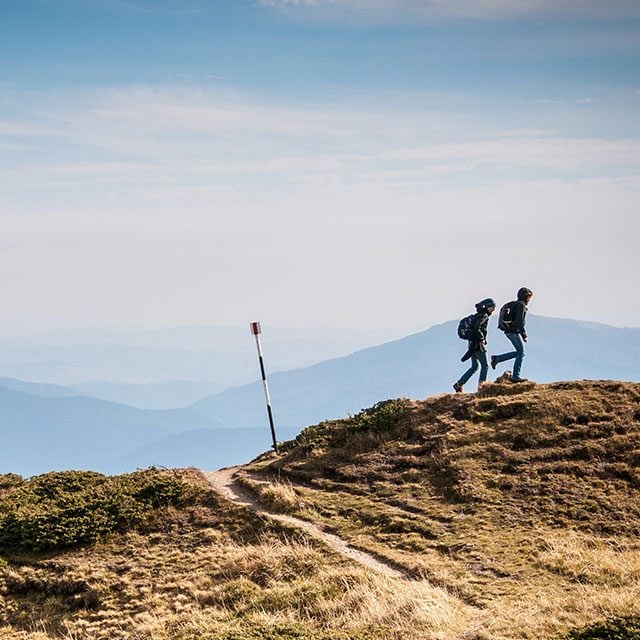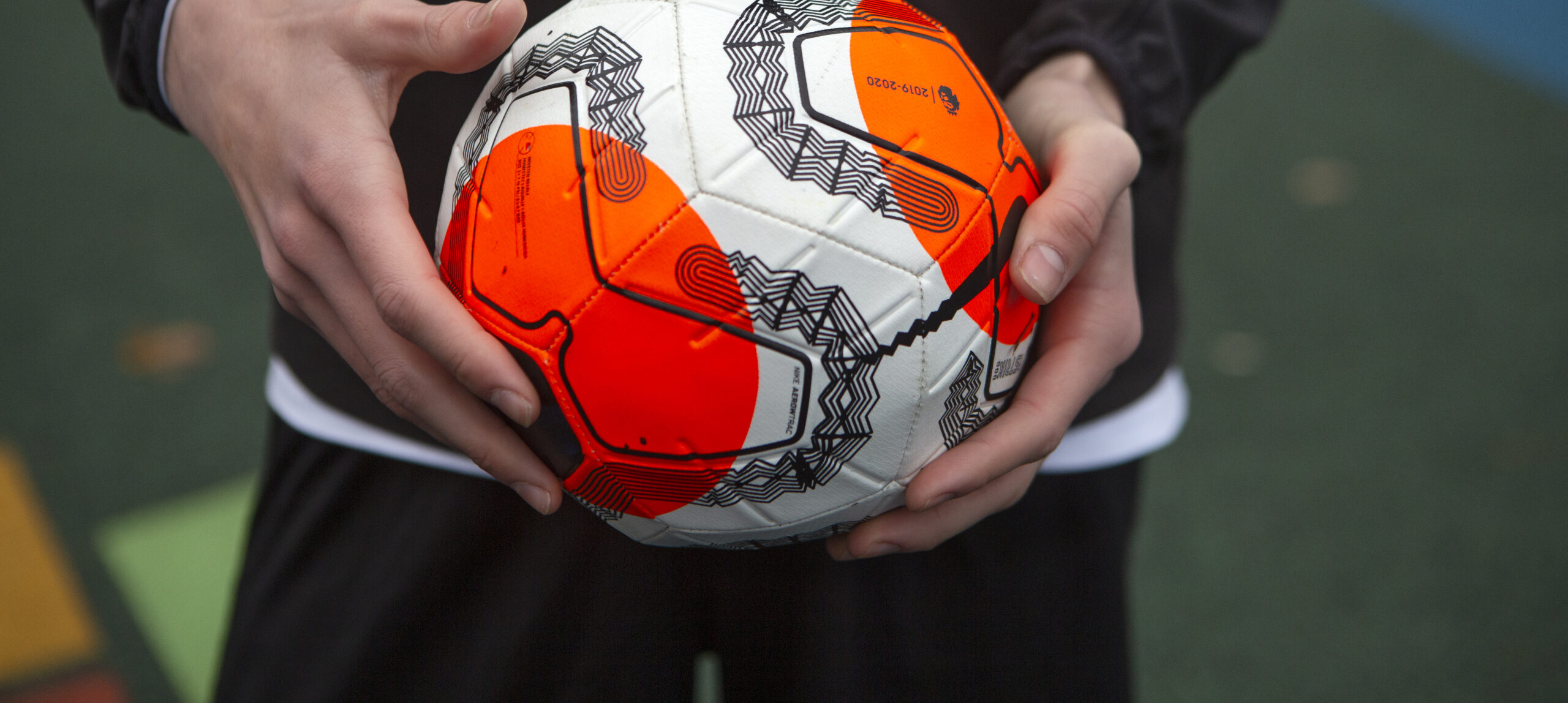
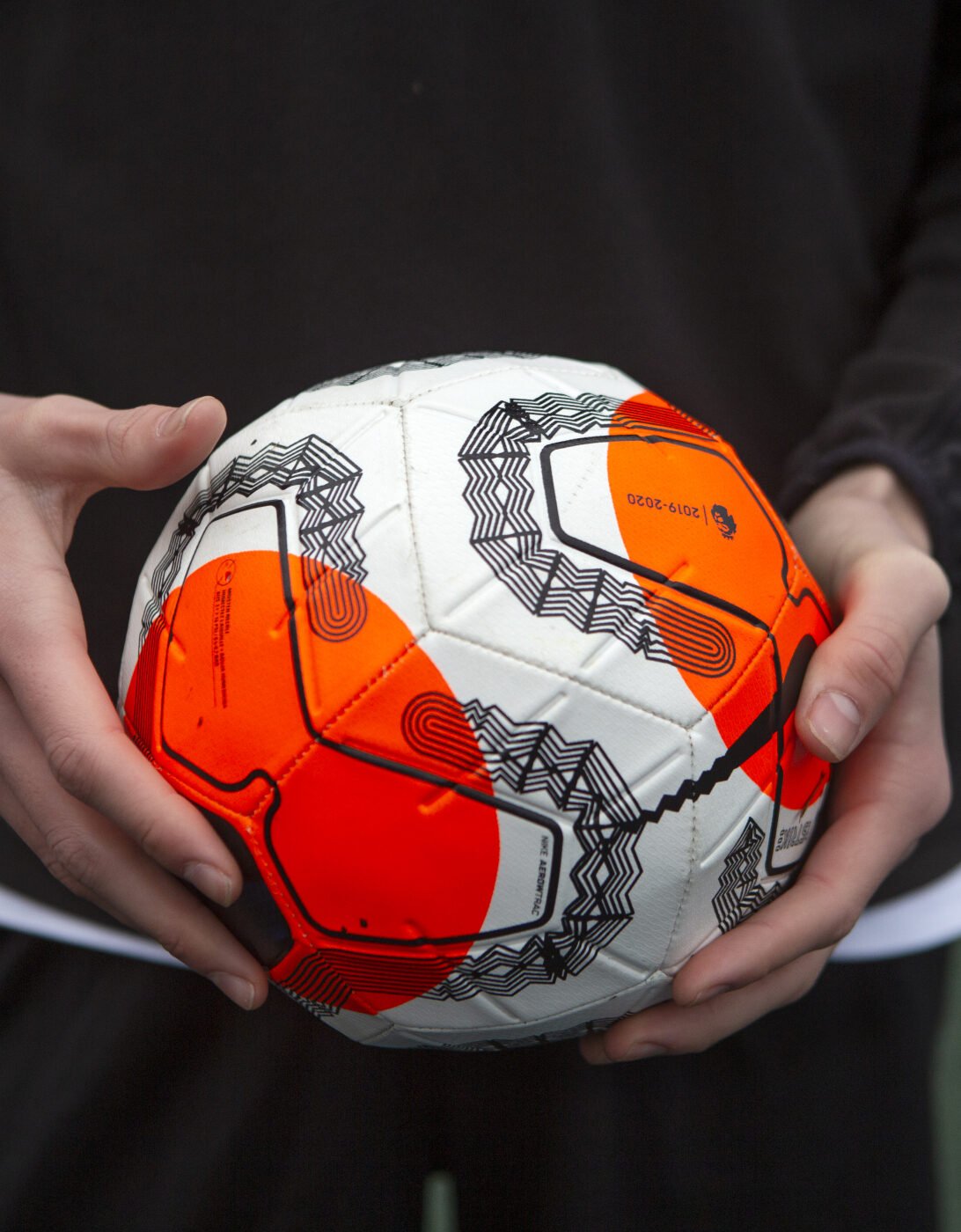
The Experience List
Growing up and making the most of your potential is about more than just timetables and results.
It’s about amazing experiences outside the classroom, that broaden your horizons and build your confidence, independence and resilience – character traits that can support your mental wellbeing and prepare you for the workplace and beyond.
We asked more than 4,000 people, including young people, members of the public, parents, business leaders and teachers, to tell us which activities and experiences they think are vital for building character.
We’ve gathered all their ideas and come up with the definitive list of character hacks for teenagers today – 25 experiences every young person should have the chance to try.
From volunteering to digital detoxing, travelling to campaigning, they’ll help you discover people and places, gain new skills, challenge yourself and find out what you’re really passionate about.
So, what are you waiting for?
Babysitter. Shop assistant. Waiter. Whatever the ad says, don’t underestimate what you’ll gain from work experience, an internship or a part-time job. Not only will it look great on your personal statement or CV, it will also boost those all-important ‘soft’ skills and give you that little extra to talk about in interviews.
You’ll learn how to manage your time, solve problems and work in a team. If you’re in a customer-facing role, you’ll definitely improve your communication skills – and extra cash in the bank could be your first step towards financial independence.
Our research shows that more than half of young people (51%) have never had a part-time job – what are you waiting for? Whether you sell ice cream in Brighton or cover reception in your mum’s office in Blairgowrie, it might lead to great things.
Research shows that interacting with other generations has huge benefits for young people. Spending time with an older person can help you to build your confidence, improve the way you communicate and feel part of your wider community. It’s also a chance to learn about the challenges of growing older, such as loneliness, as well as the opportunities it brings – and you’ll benefit from the wealth of learning and experience older people have.
If you don’t have an older person in your life, there are plenty of ways to get to know older people in your local area. Start small by offering to help a neighbour with their shopping or some household tasks. Or you could volunteer for a befriending charity, help run a social event or teach an older person how to use technology. Even a 10-minute conversation can make a big difference – to you and to them.
Being a mentor can be incredibly rewarding. Imagine being able to support a child as they navigate their way through their early years – giving them advice about everything from family life to exams to friendship. Visits to the park, art projects, football matches… however you spend your time with them, you’ll play an important role in helping them to make the right choices and increase their self-worth.
What will you get in return? You’ll become a strong leader by setting goals and helping someone to achieve them. You’ll take pride in seeing another young person realise their potential which, in turn, should motivate you and boost your confidence. Your role as a mentor will also be a fantastic discussion point on your university and job applications.
If you have some spare time, why not use it to support a good cause? Not only will you make a difference to a campaign or charity you believe in, and get satisfaction from helping others, you’ll also gain various skills that you can use in your future career. Think teamwork, confidence and communication. All great stuff that you can include in your personal statement and on applications for jobs.
Many young people tell us that the time they spend volunteering is the most rewarding and memorable part of their DofE programme. Lots of UK charities need volunteers – from sports coaches to tree planters – so there are plenty of opportunities available for young people across the UK. If you’re doing your DofE, why not take a look at our Opportunity Finder?
Netballer? Coder? Actor? If you have a passion for something, you can bet lots of others do too. So, why not join a club and make new like-minded friends? When universities and employers look at your CV, they’ll want to see more than your academic qualifications. Taking part in a sports team, a coding workshop, a drama group or something else can help you stand out from the crowd. It shows dedication and a desire to learn. It also demonstrates that you’re confident, independent and a good teamworker.
Your school probably offers a range of clubs, so see if you can get involved in one of these. Your local leisure centre or community theatre is also a good place to start. If you can’t find a club nearby, why not get a few friends together and set one up yourself?
Your first festival or gig… it’s a rite of passage for any teenager so make it a good one! It might mean saving up your pocket money or wages from your part-time job, but you’ll never forget it. It doesn’t need to be Glastonbury or cost a fortune – you can find family-friendly festivals and small venues showcasing up-and-coming bands all over the UK, all year round.
Seeing your favourite artist or band isn’t just great fun, it can also help you to gain important skills. As well as saving up for your ticket, you’ll have to plan your trip, organise your travel, get your friends on board and, if you go to a festival, put up your tent in a muddy field! That all helps with your confidence, your resilience, your independence (and your ability to rock a pair of wellies, of course). Plus, all that singing along and laughing with your mates is good for your mental wellbeing.
¡Hola! Bonjour! If you get the chance to learn another language, go for it. It’s good for your brain, helping you to multi-task and remember information. It makes it easier for you to adapt to new situations and can be great for your confidence and self-esteem. It can even improve your English communication skills as you become more aware of things like grammar and sentence structure.
Whether you take up Spanish, Mandarin, French or another language, you could boost your career prospects. In an increasingly global job market, being multilingual can help you to stand out from the crowd. Plus, learning even the basics of another language will make it easier getting to know people (and understanding the menu!) next time you visit that country.
One way you can ensure you stay healthy is to set yourself a personal physical challenge that will stretch both your body and mind.
Everybody’s different, so choose something that suits you. It doesn’t need be something huge, like a marathon or the Three Peaks Challenge – it could be starting a weekly aerobics class, doing a sponsored fun run, picking up your bike for the first time in ages or joining a local club – anything from wheelchair basketball to 10-pin bowling. If you’re doing your DofE, your challenge could count towards your Physical section and be great preparation for your expedition.
Getting into the exercise habit when you’re young is really positive. It isn’t just good for your physical and mental health, it’s also good for your career prospects. Physical activity can make you more focused, more productive and less likely to experience stress. Plus, if you have a training schedule, that shows good organisation skills and high levels of motivation.
Knowing what to do in an emergency is an essential skill. Would you be able to help your brother if he started choking on his dinner? Would you know what to do for a friend who sprained an ankle? A survey by The British Red Cross shows that many young people would panic in an emergency situation – in fact, 97% believe that first aid education would improve their confidence, skills and willingness to take action in a crisis.
It’s easy to get up to speed with basic first aid. From September 2020, all schools in England will offer first aid training as part of the curriculum. But, for now, there’s lots of information and video tutorials online or you can attend a course from a charity like St John Ambulance to get a first aid qualification. This can be very useful if you’re doing your DofE and will also be recognised by UCAS.
Maybe you get a weekly allowance from your parents or you work part or full-time – however you get your cash, saving it rather than spending it might sometimes be a challenge. Knowing how to manage your money is an important skill and is one of the first steps towards independence for many teenagers. Understanding things like how to set saving goals, how to budget effectively and how to avoid getting into debt are good habits for life.
You might be offered some guidance on money management at school. You can also talk to your family or friends about it as they might have some tips based on their own experiences and there’s lots of information on the internet.
The school holidays are a great opportunity to broaden your horizons. You could jump on the bus or train and go somewhere in the UK where you’ve never been – or, if you’ve got a passport and have saved up a bit of money, how about a trip to Norway or Portugal? Here are three things we guarantee will happen on your trip: 1) You’ll meet new people (who might not even speak the same language as you), 2) You’ll try new things (from food to museums to sports) and 3) You’ll get experience of problem-solving and overcoming challenges (Awful hostel? Trouble finding your way around? Struggling with the local language? You’ll have to find ways deal with it).
Ultimately, travel is good for the soul. As well as creating some fantastic memories, it will help you feel calmer and happier. Employers really value people who are adventurous, independent and resilient. So, whether you go on a few camping trips in the UK or venture further afield, your travel experiences will have a positive impact for the rest of your life. Grab your bag and go!
Did you know that, on average, we check our phones every 12 minutes? Gulp. Whilst mobiles and other digital devices are useful for staying in touch and getting information, we’ve all become quite dependent on them. So, if you’re constantly checking your messages or seeing how many people liked your latest Instagram post, how about taking a digital time-out?
Switching off for a good chunk of time can have lots of benefits. You’ll reconnect with people and things in the real world. You’ll be less distracted when you’re doing your schoolwork. You might even feel happier and more relaxed as you’re free from the pressure of having to reply to a message or comment on someone’s post. Of course, technology is a big part of most jobs now and an important way to keep in touch with friends and family – so we’re not saying don’t use it at all –just try to strike the right balance between the time you spend online and offline.
43% of teenagers have never campaigned on an issue that matters to them, according to our research. Whether you’re passionate about climate change, equal rights, period poverty or something else, it might be time to take a stand. As environmental activist Greta Thunberg said recently, people underestimate “the force of angry kids”.
By educating yourself on a particular issue and working with others to raise awareness of it, you’ll need to draw on your organisational, problem-solving, creative, communications and leadership skills. Although social media is an increasingly useful tool for activism, you should also be confident about meeting new people face-to-face and speaking in public. Campaigning for something you believe in shows conviction and resilience. One piece of advice: Take care of your digital footprint. What seems like a harmless tweet to you might not impress a university admissions officer or potential employer.
Spaghetti bolognese. Vegetable samosas. Chocolate cake. Whatever you love to eat, wouldn’t it be great if you knew how to make it? Being able to cook is a skill you’ll use throughout your life and that will help you to be independent. It will save you money and, if you focus on nutritious meals, it will help to boost your physical and mental health.
How about cooking something with – or for – your family or friends? It’s a great way to bond and imagine how proud you’ll feel when you see people you’re close to enjoying the delicious meal you made. Cooking also helps you to learn where food comes from, to appreciate the way different cultures eat and to understand the cost of ingredients. Time to get cooking!
Documentaries like Cowspiracy and Meat: A threat to our planet? might have got you thinking about going vegetarian or vegan. You’re not alone. In the UK, veganism has grown by 350% over the last decade, largely driven by young people. You might want to switch to a plant-based diet for health reasons or because you’re worried about the environmental impact of meat and dairy.
As a young person, you’ll increasingly make these kinds of decisions about your life – you’re becoming independent and you want to stand up for the things you believe in. Make sure you do your research about vegetarianism and veganism first. Talk to your parents and friends about it and look online for information about the health benefits and any potential risks before deciding it’s the right lifestyle change for you.
How often to you spend time outdoors? Our research shows that a fifth of teenagers (20%) have never been for a walk in the countryside. If you live in a town or city, it might be difficult to connect with nature but you really should – it can have an extraordinary impact on your body and your mind as you focus all your senses on the birdsong, flowers or waves.
In fact, experts say that spending time on a river, in the sea, up a mountain, in woodland or in other wild places not only promotes physical activity (think canoeing, surfing, running, cycling…) but can also help with your mental health What’s more, spending time in nature will remind you of its fragility and might encourage you to be more active on environmental issues.
There’s a well-known phrase, “pay it forward”, that encourages people to repay kindness to others. We even celebrate World Kindness Day each November. It doesn’t take much – giving up your seat on the train, standing up for someone who is being bullied online, donating to a food bank – but research shows that kindness has a positive impact on both the recipient and the person who does the kind deed.
Being kind can reduce stress, release happiness hormones and help us to bond with others. It’s called ‘psychological flourishing’. And if you carry out random acts of kindness in your teenage years, it will set you up for the future – your compassion, generosity and inclusivity will no doubt be highly regarded by friends and employers. As Archbishop Desmond Tutu said, “Do your little bit of good where you are. It’s those little bits of good put together that overwhelm the world.”
We’re not all able to trace our family histories. Luckily, learning about your history can be about more than just your ancestry. Why not research something important or personal to you that influences your life today? Maybe you want to find out about your hometown, its defining moments and how it’s changed? Perhaps you’d like to discover more about the local women who fought for the vote, or find out who lived in your house before you?
There are loads of resources for digging into the past – websites, libraries, newspaper and museum archives. If you can, sit down with a parent or carer, your grandparents or older people in the community. Ask them about your family or their experiences and memories.
Digging into the past can be really enriching and make you look at the world differently. It can put your own challenges into perspective or give you inspiration to overcome them – and it can make you feel part of something bigger and show you where the rights and freedoms we take for granted today have come from.
It can be one of the most nerve-racking experiences… the moment you have to stand up in a school assembly or in the classroom and talk. Very few people enjoy public speaking, but it’s a great thing to learn and will be a useful skill for your future. Here are three tips to get you through your next speech:
- Be aware of your body language (it’s a good idea to practice in front of a mirror),
- Focus on the audience (you might even want to get them involved),
- Know your speech inside out (especially the opening – if you get that right, the rest will be a doddle).
Does your school have a debating club or a drama group? Speaking or performing regularly in front of an audience is good practice. And when you go for that university place, apprenticeship or dream job, you’ll not only have evidence of your presentation and communication skills, you’ll also nail the interview.
Painting, singing, drawing, playing a musical instrument… there are lots of ways arts and culture can enrich your life now and in the future. It can help you to develop transferable skills, such as critical thinking, empathy and creativity, that will ensure you’re well-placed for the jobs of the future. Creating a piece of art or music can also help you to make new friends and take an active role in the wider community – and the chance to focus your mind can be great for your mental wellbeing.
Ask your art or music teacher how you can get started with your creation. Outside of school, you might want to join a local art group or take a class so you can see where your talents lie (watercolour landscapes, maybe?). If you’ve got a melody inside you, find some like-minded musicians and set up a group yourself.
You’ve seen Britain’s Got Talent, Strictly and The Greatest Dancer, now it’s your turn! Dancing isn’t just great fun, it has many benefits for young people. It’s good for your cardiovascular health and improves your flexibility, strength and stamina. If you do it in a group or take a class, dance will teach you to co-operate with others and build trusting relationships. In the long term, you’ll be able to take the discipline, creativity, confidence and memory skills that you gain through dance and transfer them to your studies and work.
Whether ballet, contemporary, salsa, ballroom, street or another type of dancing is your thing, there are lots of classes and groups available at leisure centres and dance studios across the UK. And one of the best things about dance is that you can practice it anywhere – in your bedroom, in the school gym, in the park… So, throw away those insecurities and get dancing!
For lots of us, fashion is a way of expressing ourselves and creating our own identity. You might have your own money and be able to buy some of your own clothes for the first time or you might even upcycle or make them yourself. The key thing to remember is that you should always dress for yourself, not for other people. Try not to give in to pressure from your friends or social media influencers or feel like you always have to wear certain brands.
Fashion is fickle and trends change constantly – the important thing is to own your personal style and wear what makes you feel good. Keeping up with everyone else won’t make you happy – being true to yourself will.
Around 3.85 million people registered to vote in the run-up to the General Election (12 December 2019), of which more than a third were under 25. There’s clearly a renewed interest in politics among young people. So, why the surge in engagement? Brexit, the climate emergency, austerity, knife crime, mental health… these issues and many more matter to teenagers and young adults across the UK.
If you’d like to engage more in politics, start by finding out how it’s covered at your school (in PSHE lessons or at A Level, for example). Do your research – watch the news, read online articles, watch videos – so that you can decide which issues are the most important to you. Being politically aware can help you to become a more rounded individual and encourage you to take action to make your community and our wider society a better place.
In November 2019, more than 11,000 scientists issued a stark warning: “We declare clearly and unequivocally that planet Earth is facing a climate emergency. To secure a sustainable future, we must change how we live”. It’s more important than ever that we protect the planet for generations to come and you can play a vital role in this as a voice of change.
Of course, many teenagers are already helping to address climate change by volunteering for charities, taking part in climate strikes and raising awareness on social media. This kind of proactive approach will stand you in good stead for other situations you might experience in adulthood. On a personal level, getting the facts about climate change and encouraging family and friends to be more environmentally-aware – from reducing single-use plastic to taking fewer flights – can make a positive difference. Who knows, your interest in the climate might even lead to a job in conservation or sustainability down the line?
It can be scary, talking to a complete stranger (in a safe environment). What if we don’t get on? What if I run out of things to say? It’s perfectly normal to worry about these things – in fact, the other person is probably just as nervous! But it’s good to get used to doing this as you’ll probably have to do it every day once you start work.
It’s all about the way you communicate. Be confident but not arrogant. Ask questions (people love being asked about themselves) and listen carefully to the answers. Find common ground – there might be a sport you both enjoy or someone you know in common. Young people who do their DofE get to meet lots of new people and make new friendships. In fact, many of them tell us it’s one of the best things about doing it. So, next time you’re in a new situation, surrounded by strangers, don’t be afraid to say hello.
Inspired by The Experience List? Gain more skills and experiences by doing your DofE.
When taking part in these experiences and / or DofE activities, young people’s safety is the priority – here’s our general advice on safeguarding.


